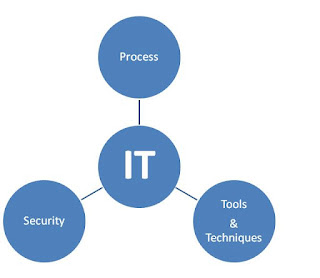Have you considered the difference between someone who manages a small in-house project and someone who manages a large infrastructure project?
After all, they are both project managers and they both manage time, quality and money. In theory, they both meet all of the project management definitions.
However, their competencies surely differ?
If we look carefully at a "project manager", we are really identifying someone who has a broad range of skills. These skills are dynamic; as they shift and grow depending on the climate of the day. For instance, in Financial project management, risk assessment has a much higher priority today than it did say three years ago. As a subset of risk management, governance and corruption prevention is taking a higher standing with the introduction of the Bribery Act and UNCAC.
In short: project managers are facing a daunting number of skills to develop in today’s day and age.
The skills sets in Project Management broadly fit into three main areas:
- General management
- Project Specific Skills
- IT Skills. This has taken on huge significance over the last couple of years with a vast range of software in a variety of areas.
 |
| Figure 1: General Management. These subjects are included in many organisations’ management development training programmes. |
 |
| Figure 2: Project Specific categories |
Each of these will, of course have a complete subset and if we look at Procurement alone, this would include:
- Legal framework
- The procurement cycle
- Specification
- Planning
- Sourcing
- Bid preparation, analysis, evaluation
- Award of contract
- Contract Management
- Audit
- Negotiation
- Etc
 |
| Figure 3: IT Project Management Diagram |
Not many of us would be too comfortable in buckling a safety belt on a long-haul flight, when knowing that the pilot's previous experience of flying was that of controlling a model aircraft.
A project manager similarly requires careful professional development and to be able to measure individual performance against a series of parameters or a competency framework, is paramount. Most of these subjects do not exist in schools or colleges but are demanded by most employers. These will be identified on appraisal forms or during a training needs analysis and then a panacea training course will be provided. The diagrams also indicate that a project manager needs to possess a wide range of skills and competencies and these cannot be developed in a short space of time, but can be planned over a period for the right individual.
Many organisations who have developed competency frameworks include key soft management skills in their core competencies, but then include an all-encompassing “project management” competency.
As most managers, have to manage projects, is it time for organisations to reconsider their "fast-track schemes", management development schemes and leadership development programmes and replace them with project management development schemes. This would provide managers with more than just the soft skills required for leadership and management but also a complete range of functional skills at the required level, required for tackling appropriate projects.
By Stefan Urbanski, Director of Studies, Capita.



Accurate Project Managers are an extraordinary find. They not just know the growing calling of undertaking administration, are typically masters in their fields, are respectable chiefs in their own right and are the holders of progress inside and crosswise over organisations. See more ...
ReplyDelete